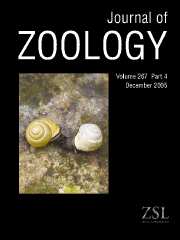Article contents
Parasite diversity of Norwegian lemmings (Lemmus lemmus)
Published online by Cambridge University Press: 26 March 2001
Abstract
The parasite diversity of Norwegian lemmings Lemmus lemmus was studied in northern Fennoscandia during a moderate population peak in 1997–98. Our aim was to study the parasites of lemmings in their normal mountainous habitats in anticipation of the next great lemming migration in northern Fennoscandia into the coniferous taiga. The blood parasites (Hepatozoon, Trypanosoma and Bartonella) found, Frenkelia sp., which invades the brain tissue of the host, and the pulmonary fungus Chrysosporium (Emmonsia) sp., have been detected previously in the Norwegian lemming, but an unknown fungus, and oocysts of Eimeria spp. have not been reported from L. lemmus before. The Norwegian lemming was found to have an exceptionally species-poor helminth fauna. Only one species of cestode (Andrya sp.) occurring in lemmings at the adult stage was found, and the cestodes of carnivores that commonly parasitize voles at the larval stage were totally absent. The distribution and abundance of vectors, and sympatric definitive hosts of parasites are predicted to have a major role in determining the parasites that lemmings will encounter during their mass movements in new habitats. However, it is predicted that parasitism by adult and larval helminths is not markedly affected by the habitat change associated with the mass migration.
- Type
- Research Article
- Information
- Copyright
- 2001 The Zoological Society of London
- 4
- Cited by


